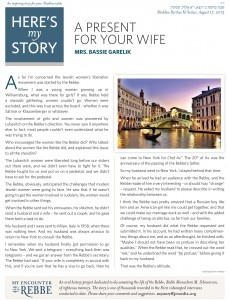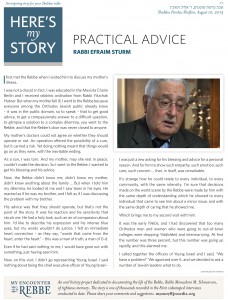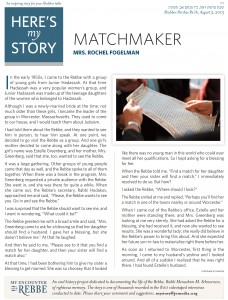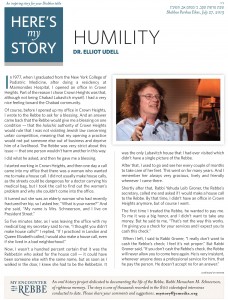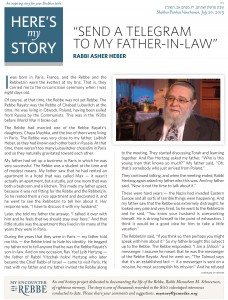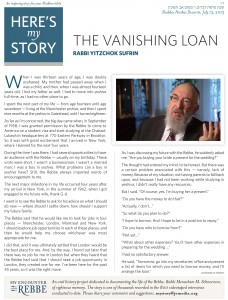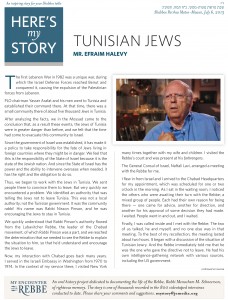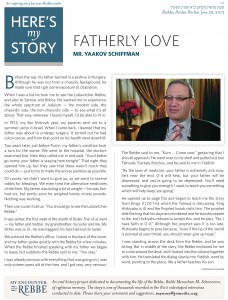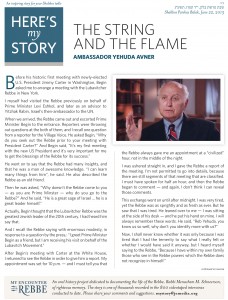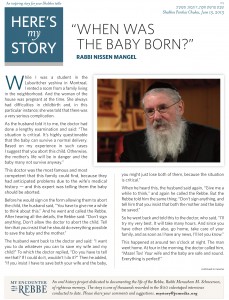HMS: A Present for your wife
As far I’m concerned the Jewish women’s liberation movement was started by the Rebbe.
When I was a young woman growing up in Williamsburg, what was there for girls? If any Rebbe held a chassidic gathering, women couldn’t go. Women were excluded, and this was true across the board – whether it was Satmar or Klausenberger or whatever.
The involvement of girls and women was pioneered by Lubavitch on the Rebbe’s direction. You never saw it anywhere else. In fact, most people couldn’t even understand what he was trying to do.
Who encouraged the women like the Rebbe did? Who talked about the women like the Rebbe did, and explained this issue to all the chasidim?
The Lubavitch women were liberated long before our sisters out there were, and we didn’t even have to fight for it. The Rebbe fought for us and put us on a pedestal, and we didn’t have to ask for the pedestal.
The Rebbe, obviously, anticipated the challenges that modern Jewish women were going to face. He saw that if he wasn’t going to get the women involved in Judaism, the women would get involved in other things.
When the Rebbe sent out his emissaries, his shluchim, he didn’t send a husband and a wife – he sent out a couple, and he gave them both a task to do. (more…)


